Thanking Minister Nguyen Van Thang for his time, Mr. Koshio said that Toyo is a multi-industry corporation in real estate, infrastructure investment, industrial zones, energy, renewable energy... Toyo has been investing in Viet Nam on a number of projects, such as the Green Energy Plant Project invested with Idemitsu in Binh Dinh (totaling US $40 million); Waste-to-Energy Plant Investment Project in Bac Ninh province (totaling US $220 million); Cosmetic factory project in District 7, Ho Chi Minh City (totaling US $60 million).
Chairman of Toyo Group hopes to have more investment opportunities in Viet Nam, especially in the aviation industry.
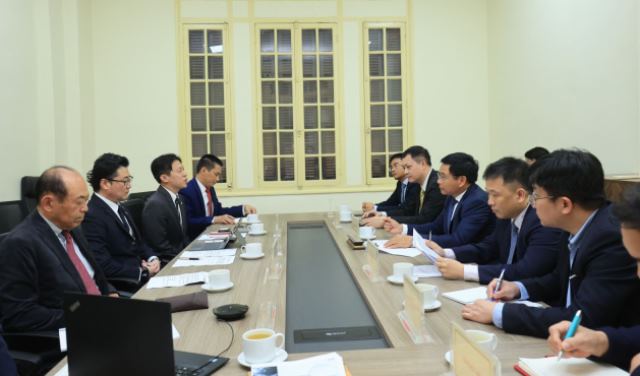
Toyo is in a collaboration with JGC Holdings (established in 1928). JGC Holdings is the EPC contractor for the construction of oil refineries and renewable energy power plants such as wind power, solar power, industrial plants; incl. technological design services, engineering; construction and installation of mixed factories, steel structures and equipment installation for the oil and other industries; incl. operation support and maintenance services for the oil and other industries; incl. technical analysis and verification services. (JGC Holdings' revenue in 2023 reached $4.5 billion).
"We really hope to have more investment opportunities in Viet Nam, especially in the aviation industry", Mr. Koshio affirmed at the meeting.
Chairman Koshio Katsuhiko also added that the group had worked with CAAV and discussed cooperation issues, including the aviation industry's sustainable energy such as the Sustainable Aviation Fuel (SAF) project.
Many ways to produce sustainable clean fuel
"With our strengths in the energy sector, JGC Holdings hopes to contribute to Viet Nam's aviation energy sector", a representative of JGC Holdings said, “JGC Holdings is the investor of the Sustainable Aviation Fuel (SAF) project in Japan (expected to be completed in 2025), and is the corporation implementing the Nghi Son Oil Refinery project and wind and solar power projects in Dak Lak”.
"Regarding the study of the Sustainable Aviation Fuel (SAF) project, there are many different ways to develop green energy; we can take advantage of excess cooking oil, waste, etc. Depending on the input raw materials, different technologies will be applied and therefore, the investment capital as well as the efficiency vary", the JGC Holdings representative added.
With the proposal to implement the project in Viet Nam, JCG Holdings believes that the three biggest issues to consider are raw materials, technology and cost.
In which, the pre-feasibility study would take about 4-6 months with an investment capital of Ú$200,000 - $300,000. A following overall plan to identify specific requirements would take more than 1 year with a cost of about Ú$1 million.
Produce clean fuel in Viet Nam to cut costs
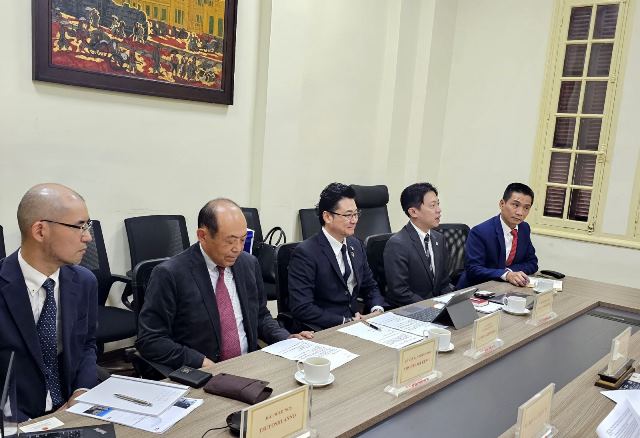
Highly evaluating the experiences of Toyo Group and JGC Holdings and the projects that the consortium is implementing in Viet Nam, Minister Nguyen Van Thang affirmed that Viet Nam always prioritizes sustainable development in all fields, including aviation.
The Ministry of Transport is focusing on emission reduction solutions to implement the commitments of the Vietnamese Government at the COP 26 and COP 28 conferences, committing to reduce net emissions to 0 by 2030. In addition, the aviation industry also participates and must comply with many other regulations of the International Civil Aviation Organization (ICAO).
According to the action program on green energy transition, reducing carbon and methane emissions of the transport sector approved by the Prime Minister, in the aviation sector, from 2035, at least 10% of sustainable fuel will be used for some short flights; 100% of passenger vehicles and other vehicles in newly established airports will run on electricity, green energy.
From 2040, all vehicles operating in the airport area run on electricity, green energy (except for specialized vehicles).
From 2050, 100% green energy, sustainable aviation fuels will be used for aircraft to minimize greenhouse gas emissions. Depending on technological conditions, the remaining emissions are compensated with carbon offsetting to achieve net emissions of "0".
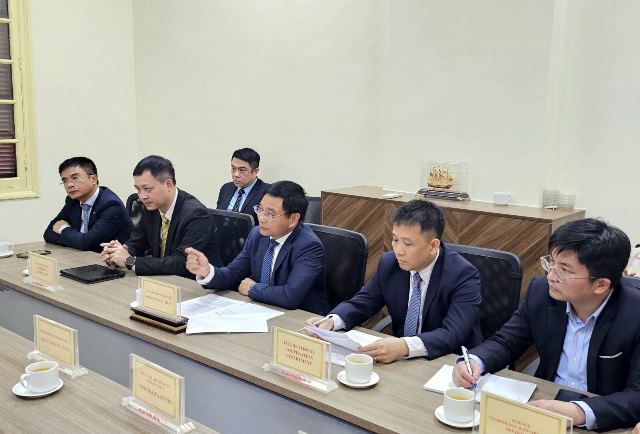
Covid-19 pandemic and ongoing political conflicts in the world have heaped up challenges for Vietnamese and global airlines. The airlines all face financial difficulties due to being restricted from operating for a long time, plus high fuel prices. By 2023, with air connectivity fully recovered, the domestic market is expected to continute to rise; The international market is meanwhile still recovering. Therefore, the transition to using clean fuel is a challenge for not only Vietnamese airlines but also global airlines. Despite this, Minister Nguyen Van Thang affirmed that Viet Nam, no matter what, is determined to reduce emissions.
The cost of Sustainable Aviation Fuel (SAF) is still quite high. This is also a challenge for Viet Namese airlines when deploying the use of SAF fuel, indirectly increasing airfares. According to research, the price of SAF compared to traditional aviation fuel is currently 2 - 3 times higher, sometimes up to 5 - 6 times. Therefore, the Minister highly appreciated Toyo Group's plan to deploy in Viet Nam the production of Sustainable Aviation Fuel (SAF) using readily available raw materials.
“The deployment of aviation fuel production in Viet Nam will contribute to reducing product costs, contributing to supporting Vietnamese airlines in the process of transitioning to green, clean fuel, meeting Viet Nam's commitments at COP26 and other international initiatives", said the Minister. He also instructed CAAV to closely coordinate with Toyo Group & JGC Holdings in the process of implementing the SAF fuel production project in Viet Nam, promoting cooperation between Toyo & JGC Holdings with Viet Namese airlines such as Viet Nam Airlines, Vietjet Air.
In addition, the construction and issuance of policy mechanisms for the development and use of Sustainable Aviation Fuel (SAF), such as standards, manufacturing and fuel use regulations, fuel use regulations... is also a new issue that Vietnamese state management agencies need to research in the coming time.
The Minister also suggested Toyo Group to continue to coordinate closely with CAAV and airlines in the implementation. Toyo is requested to support and coordinate with CAAV and airlines in proposing the construction of policies, standards, regulations in the production and use of SAF fuel. In the pre-feasibility study process, the cost can be determined, thereby helping airlines to better prepare their financial plans./.
(Eng ver by Enzo, CAAV)
.jpg)
The ICAO Council, the 36-member governing body of the International Civil Aviation Organization, has elected Toshiyuki Onuma as President of the Council for a three-year term beginning 1 January 2026.
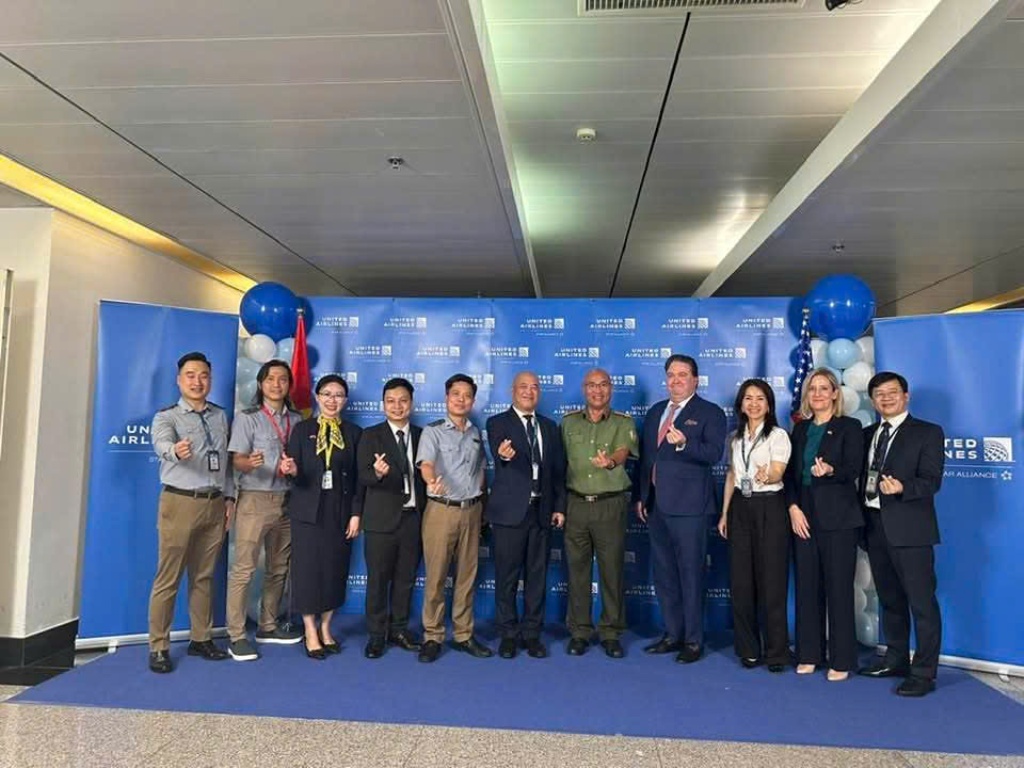
On October 27, 2025, Deputy Director General of the Civil Aviation Authority of Viet Nam (CAAV), Mr. Ho Minh Tan, attended the inaugural ceremony of United Airlines’ new route connecting Ho Chi Minh City (SGN) and Los Angeles (LAX) via Hong Kong.
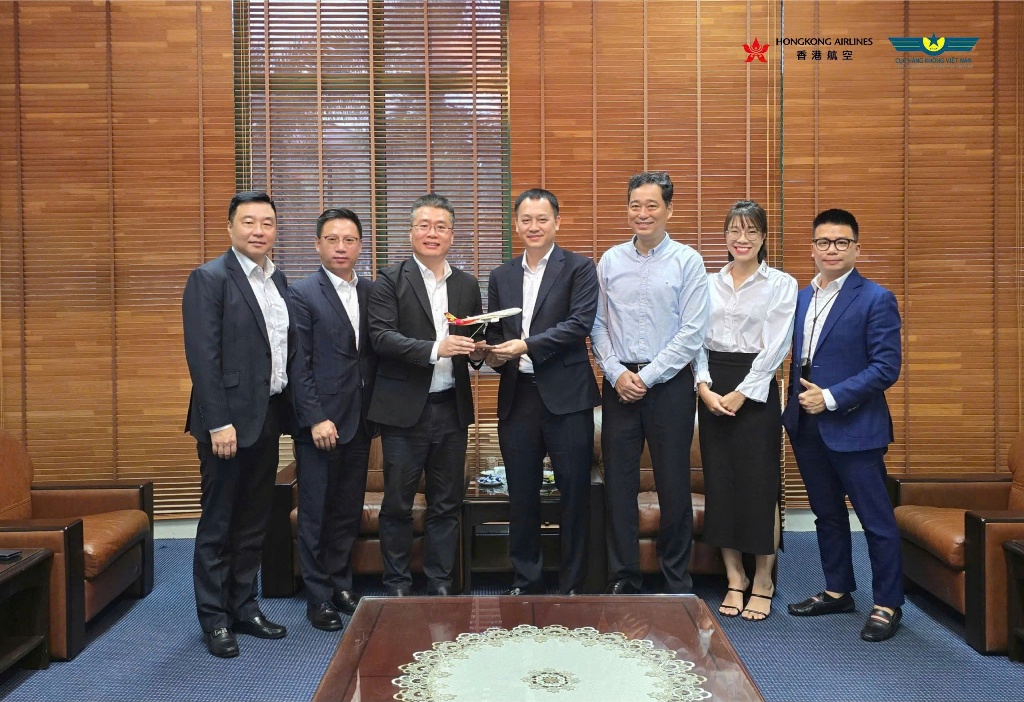
On 24 October 2025, Mr. Louis Li, Executive Vice President of Hong Kong Airlines, met with leaders of the Civil Aviation Authority of Vietnam (CAAV) to strengthen bilateral cooperation and promote sustainable growth in the aviation sector.

At the invitation of the Civil Aviation Authority of Thailand (CAAT), the delegation of the Civil Aviation Authority of Viet Nam (CAAV), led by Deputy Director General Do Hong Cam, attended the 52nd ASEAN Air Transport Working Group Meeting (ATWG 52) and the 3rd ASEAN–EU Joint Committee Meeting in Bangkok, Thailand, from 15–18 September 2025.